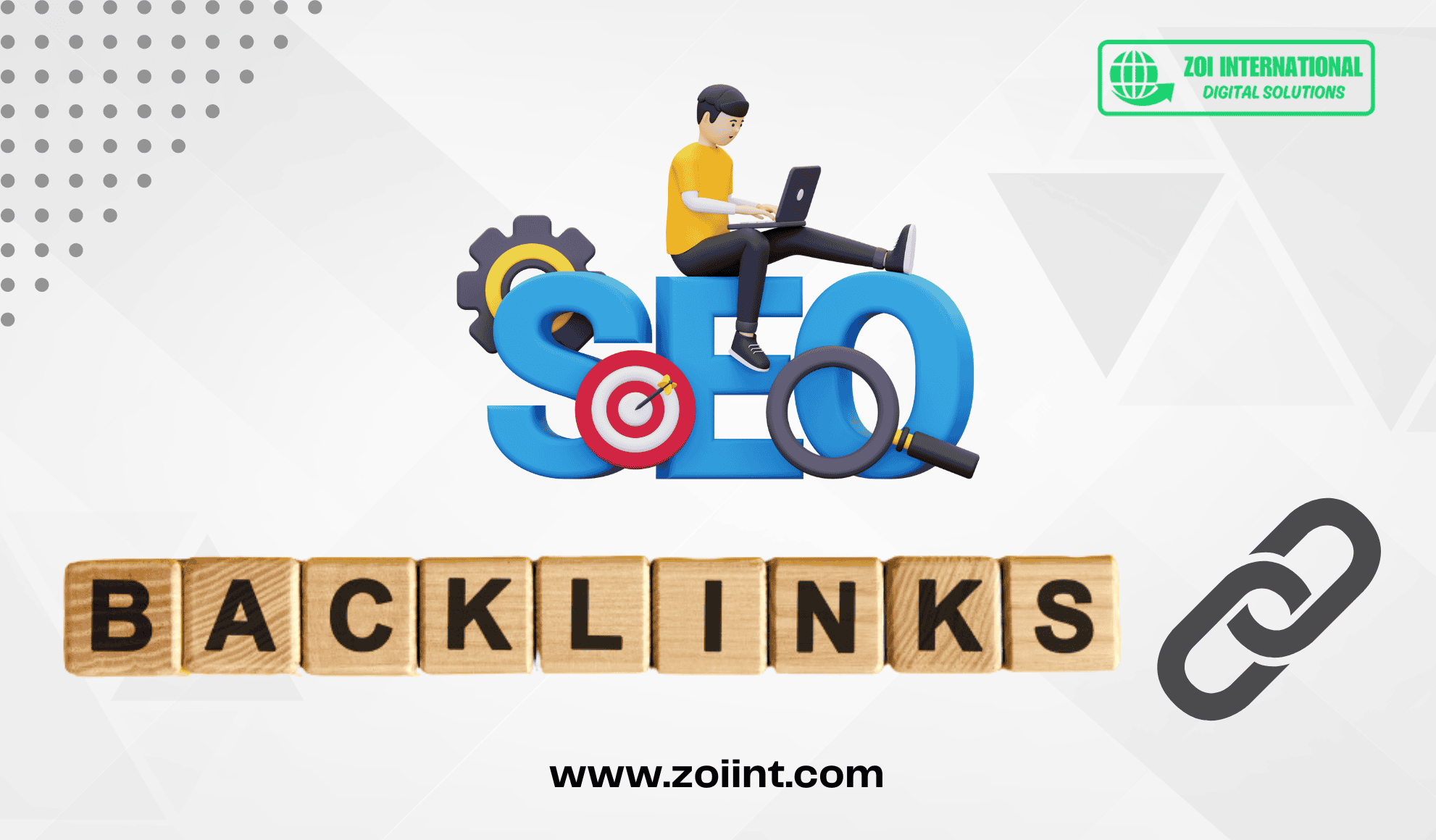In the ever-evolving world of digital marketing, backlinks are one of the most powerful tools you can use to boost your website’s search engine optimization (SEO). Backlinks, also known as inbound links, are links from other websites that point to your own. They serve as a vote of confidence from one site to another, signaling to search engines that your content is valuable, credible, and worth ranking higher in search results.
Let’s explore why backlinks are essential in your overall SEO strategy and how they impact your digital success.
What Are Backlinks?
Backlinks are links from one website to another, and search engines like Google use these links to determine the value and relevance of web content. There are two main types of backlinks: dofollow and nofollow links. Dofollow links are the standard type and pass link equity (or SEO value) from the linking website to the linked one. Nofollow links, on the other hand, do not pass this value and are typically used when a site wants to link to another but not endorse it (for example, in comments or advertisements).
How Backlinks Improve SEO
Backlinks act as a major ranking factor for search engines. Each time a credible site links to your page, it’s like a vote telling Google that your content is trustworthy. This credibility, combined with the number and quality of your backlinks, helps to improve your domain authority and overall SEO performance.
- Boosting Domain Authority: Search engines calculate domain authority based on the quality and quantity of backlinks pointing to a website. The higher the domain authority of the linking site, the more value it passes to your website. For example, a backlink from a website like Forbes would hold more weight than one from a lesser-known blog.
- Increasing Organic Traffic: With more quality backlinks, search engines are more likely to rank your content higher in search engine result pages (SERPs). Higher rankings lead to increased visibility, which translates into more organic traffic.
- Enhanced Website Credibility: A well-rounded backlink profile from reputable websites builds credibility for your brand in the eyes of both search engines and users.
Types of Quality Backlinks
Not all backlinks are created equal. The quality of a backlink depends on several factors, including the authority of the linking website, its relevance to your content, and how naturally the backlink was earned.
- Authoritative Backlinks: These come from high-domain authority websites, such as major publications, established blogs, or well-regarded educational or governmental sites. Backlinks from these sites carry more weight in boosting your SEO rankings.
- Relevance Matters: Search engines value backlinks that come from websites in the same industry or niche. For example, if you run a website marketing service and receive backlinks from a site discussing digital marketing strategies, those links will be more valuable than links from an unrelated source.
- Natural and Organic: Backlinks should appear naturally through engaging and useful content. When websites link to you voluntarily, it indicates genuine trust and interest. Search engines reward these natural links far more than spammy or forced backlinks.
Backlinks as Trust Signals for Search Engines
Backlinks are essentially trust signals. When reputable websites link to your content, they are vouching for your credibility. Google’s algorithm takes this into account when ranking web pages. Websites with a diverse and authoritative backlink profile are considered more trustworthy and valuable, leading to better search rankings.
Moreover, consistent backlinks from high-quality websites help establish your site as an authority in your field, whether you’re offering digital marketing services or e-commerce solutions.
Backlinks and Referral Traffic
Beyond SEO, backlinks serve another essential purpose: driving referral traffic. When a high-traffic website links to your content, it sends visitors directly to your page, increasing your chances of converting them into customers. For instance, a well-placed backlink from an industry blog could direct potential clients to your website marketing service offerings.
Also Read: What is SEO and Why SEO is Important for Websites?
Building Backlinks: Best Practices
Effective link-building requires a long-term strategy focused on quality over quantity. Here are some best practices:
- Create High-Quality Content: One of the most effective ways to earn backlinks is by creating valuable, shareable content. This could include blog posts, infographics, research reports, and videos that provide unique insights or solutions to common problems.
- Guest Posting: Writing guest posts for reputable websites is another great way to build backlinks. By contributing high-quality content, you can often secure a link back to your website, expanding your reach.
- Avoid Black-Hat Tactics: It’s important to avoid black-hat SEO techniques like buying backlinks or participating in link farms. These strategies can harm your SEO and may lead to penalties from search engines.

Measuring Backlink Success
Once you’ve started building backlinks, it’s crucial to monitor their performance. Tools like Google Search Console, Ahrefs, and Moz allow you to track your backlinks, measure their impact on your SEO, and assess the quality of your link profile.
Conclusion
Backlinks are a fundamental part of any SEO strategy. They serve as a trust signal for search engines, boost your site’s authority, drive referral traffic, and improve your search rankings. When building backlinks, focus on quality, relevance, and ethical practices for long-term SEO success.
If you’re looking to enhance your backlink strategy and grow your business, partnering with an expert is essential. ZOI International LLC, the best digital marketing agency in Michigan, offers comprehensive digital marketing service solutions tailored to your needs. With their expertise in website marketing services, they can help you build a strong, sustainable backlink profile that drives results.
FAQs on Backlinks
Why do some backlinks have nofollow?
Nofollow backlinks are used when the linking website doesn’t want to pass SEO value to the linked site. This might be because the link is in a user-generated content area like comments or because the site is cautious about endorsing the linked content.
Can backlinks hurt your website?
Yes, low-quality or spammy backlinks can harm your website’s SEO. If search engines detect manipulative linking practices, they can penalize your site, causing it to rank lower in search results.
Can you buy backlinks?
Buying backlinks is considered a black-hat SEO tactic and is against Google’s Webmaster Guidelines. Websites caught buying links could face penalties, including removal from search results. It’s always better to focus on earning backlinks through quality content and ethical strategies.
When should you disavow backlinks?
If you find that your site has acquired a significant number of low-quality or spammy backlinks, you should use Google’s Disavow Tool to prevent those links from affecting your SEO negatively. This is especially important if you’ve been involved in black-hat SEO practices in the past.





